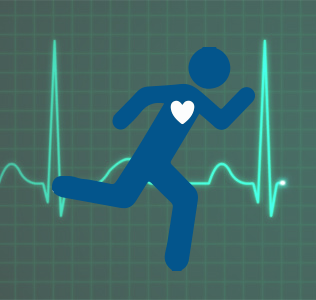
EXERCISE STRESS TESTING
An exercise stress test sometimes also known as a “treadmill test” or “stress test” records the electrical activity of the heart at rest, during exercise, and after exercise. It enables the doctor to see how a patient’s heart is performing during physical activity and, also, to identify possible heart complications during exercise. Physicians will also order this test to see how you are responding to certain medications you may be taking and/or monitor your blood pressure under physical activities. This test also monitors the electrical function/conduction of your cardiac cells and allows our cardiologists to determine many different cardiac and non-cardiac factors.
This test is performed by a technician who will place small disks called electrodes on the patient’s chest and a blood pressure cuff around their arm. The electrodes are attached to wires, called leads that are connected to the electrocardiogram machine.
While wearing the electrodes and blood pressure cuff, the patient is required to walk on a treadmill. Every two to three minutes, the technician will increase the speed and incline causing the patient to work harder. By doing this test, the doctor or technician is able to see any changes in the heart’s electrical pattern and blood pressure levels, which may indicate that the heart may not be receiving enough oxygen.
This test takes approximately 30 minutes to complete.

